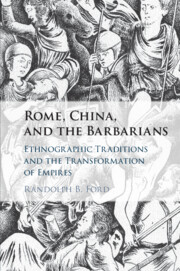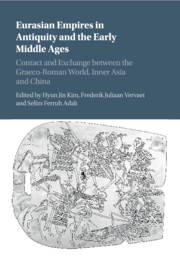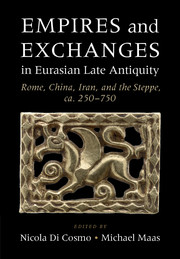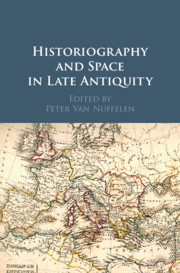Rome, China, and the Barbarians
This book addresses a largely untouched historical problem: the fourth to fifth centuries AD witnessed remarkably similar patterns of foreign invasion, conquest, and political fragmentation in Rome and China. Yet while the Western Roman Empire was never reestablished, China was reunified at the end of the sixth century. Following a comparative discussion of earlier historiographical and ethnographic traditions in the classical Greco-Roman and Chinese worlds, the book turns to the late antique/early medieval period, when the Western Roman Empire 'fell' and China was reconstituted as a united empire after centuries of foreign conquest and political division. Analyzing the discourse of ethnic identity in the historical texts of this later period, with original translations by the author, the book explores the extent to which notions of Self and Other, of 'barbarian' and 'civilized', help us understand both the transformation of the Roman world as well as the restoration of a unified imperial China.
- Gives a comparative reassessment of ethnographic practices and world views in these ancient civilizations and their reception in late antiquity
- Puts forward an original theory for the understanding of the critical, yet unexplored, divergence in ancient imperial trajectories
- Makes use of primary texts in all of the original languages, with translations by the author
Reviews & endorsements
'Rome, China, and the Barbarians is a genuinely innovative work … Highly recommended.' S. M. Burstein, Choice
'… a sweeping and highly informative survey that reaches back to the Homeric and Western Zhou traditions … painstaking and nuanced analysis … [Ford's] rich study is doubly rewarding, by showing what sustained comparative approach can accomplish but also how much more remains to be done … For now, we are very much in [Ford's] debt for unveiling new vistas. Following his lead is bound to be a challenge: collaboration among area specialists will be essential for making this line of research take off.' Walter Scheidel, The Classical Review
'With the comparison of a Greco-Roman and a Chinese historical work from the period of transition between late antiquity and the early middle ages, Ford's work is groundbreaking in comparative studies. This is accomplished on the basis of an impressive double competence in the study of classical antiquity and Sinology and a comprehensive consideration of multilingual secondary scholarship … the book as a whole represents a remarkable achievement which calls for further research.' Fritz-Heiner Mutschler, Historische Zeitschrift
'… This is a valuable and innovative contribution to the relatively new subfield of Rome-China comparative studies … Ford writes with admirable clarity … anyone venturing to [revisit the polemical and political agendas of the Jin shu chronicles and colophons] should now use Ford's fascinating and groundbreaking book as a starting point.' Shao-yun Yang, Journal of Asian Studies
'The volume published by Randolph Ford is an excellent study, very well documented, and useful as much for its analyses and reflections about the Jinshu as for the perspective provided by the comparison with Procopius. Its strong point is to highlight, with textual evidence, the rhetorical and political conservatism of Chinese historians from the beginning of the Tang dynasty.' Damien Chaussende, T'oung Pao
'With the comparison of a Greco-Roman and a Chinese historical work from the period of transition between late antiquity and the early middle ages, Ford's work is groundbreaking in comparative studies. This is accomplished on the basis of an impressive double competence in the study of classical antiquity and Sinology and a comprehensive consideration of multilingual secondary scholarship … the book as a whole represents a remarkable achievement which calls for further research.' Fritz-Heiner Mutschler, Historische Zeitschrift
Product details
June 2022Paperback
9781108463010
389 pages
228 × 151 × 21 mm
0.57kg
12 maps
Available
Table of Contents
- Introduction
- 1. Ethnography in the Classical Age
- 2. The Barbarian and Barbarian antitheses
- 3. Ethnography in a post-Classical Age: the ethnographic tradition in the Wars of Procopius and in the Jin shu 晉書
- 4. New Emperors and ethnographic clothes: the representation of Barbarian rulers
- 5. The confluence of ethnographic discourse and political legitimacy: rhetorical arguments on the legitimacy of Barbarian kingdoms
- Conclusion
- Bibliography
- Index.









